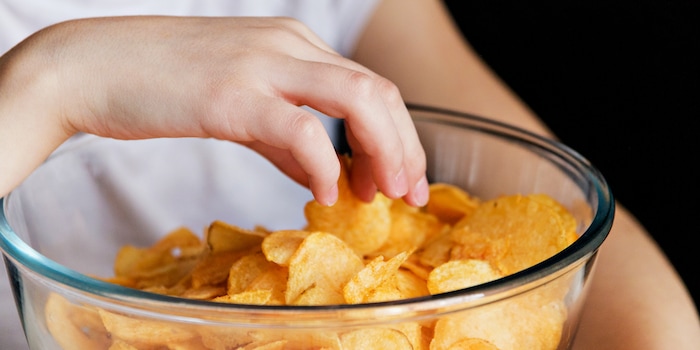
The sweet idleness: boredom tempts children to eat much more
A British study has investigated how children's eating behaviour changes when they feel bored. The result: they consume 80 per cent more calories than busy children, and that within a very short time.
"I'm bored!" and "I'm so hungry" - as a parent, these two statements will certainly sound familiar to you. I would even venture to say that they are among the most frequently uttered phrases by children. Surprisingly often they are said in close succession. This is because it is often not necessarily an empty stomach that is responsible for a supposed feeling of hunger, but boredom.
A British research team from Aston University in Birmingham has now also investigated the connection between eating behaviour and boredom in children. The findings of the new study: When children feel bored, they eat more - even significantly more within a very short period of time.
How the experiment worked
120 children aged four and five took part in the experiment. They were divided into groups and asked to complete a puzzle with the prospect of a reward in the form of a small gift.
The children in the "boredom group" first had to sit at the table for a few minutes and wait for their turn. They then had to wait a further four minutes and were given snacks such as crisps, biscuits, carrot sticks and mini grissini to tide them over. The snacks were then removed and the puzzle task began.
The control group had no waiting time, the children were allowed to solve the puzzle immediately. They then had the choice of either helping themselves to the snacks for four minutes or playing games to pass the time.
In the four minutes with snack bowls, the "boredom group" consumed an average of 42 kilocalories more than the control group - that's around 80 per cent more. The difference was particularly pronounced in children whose parents often used sweet foods in everyday life to calm them down or keep them occupied.
Aware of food as a gap filler
The scientific team led by study leader Claire Farrow warns in the study report that if children were to consume so many calories during a four-minute bout of boredom, the potential for excessive calorie intake over an entire day, week or year is high.
Of course, it is tempting for parents to use food to calm down, the news agency DPA quoted the study leader as saying. However, this behaviour, known as emotional feeding, can lead to children using food to deal with negative emotions later on, even as adults. "It is important that parents and carers realise that this short-term solution can lead to problems in the future."
Antje Gahl from the German Nutrition Society (DGE) adds: However, in certain situations, such as long train or car journeys, it is perfectly okay for children to eat a little more from time to time, she says. "Children eat what's available," she emphasises.
Healthy snacks, for example. So if the next time you're travelling in the car and your child shouts "Laaangweilig" and "Huuunger" behind you in the back seat, simply hand over a box full of fruit and vegetables: "Guuurkenzeit!"
Cover photo: Shutterstock
Mom of Anna and Elsa, aperitif expert, group fitness fanatic, aspiring dancer and gossip lover. Often a multitasker and a person who wants it all, sometimes a chocolate chef and queen of the couch.
From the latest iPhone to the return of 80s fashion. The editorial team will help you make sense of it all.
Show all